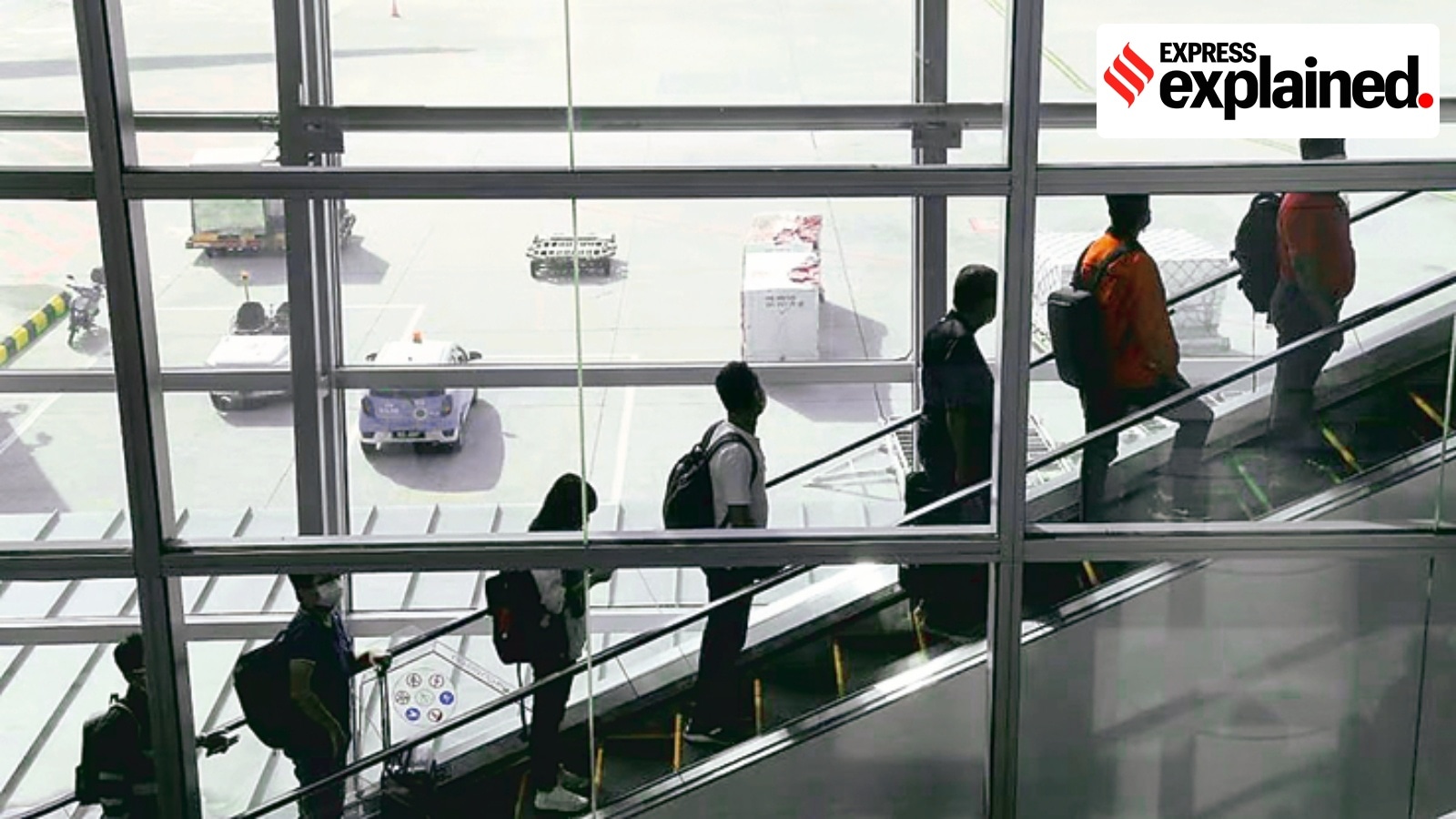The Ministry of External Affairs (MEA) recently released the draft Overseas Mobility (Facilitation and Welfare) Bill, to be introduced in the winter session of Parliament next month. The Bill will replace the Emigration Act of 1983.
With Indians increasingly migrating to almost all parts of the world, often for blue-collar jobs, the proposed Bill aims to create a regulatory mechanism for their safe migration. More importantly, it spells out deportation and illegal migration, which have garnered political attention in India and abroad, of late. Many countries have tightened immigration rules and sent back people who migrate without proper paperwork.

The MEA has invited feedback on the draft till November 7. Here is a look at its key provisions.
Why now?
In a year when scores of Indian immigrants were deported from the US under the Trump 2.0 administration, with many restrained while aboard military planes, issues of immigration have come starkly into focus. In this context, the new law aims to establish an enabling framework which will promote “safe, orderly and regular migration for overseas employment”.
Responding to a query by the Parliamentary Standing Committee on External Affairs earlier this year, weeks after the first batch of Indians were deported from the US in not the best of conditions, MEA submitted that the proposed legislation seeks to replace the Emigration Act of 1983.
The earlier law came in the wake of the large-scale migration of Indians from the 1970s onward to the Gulf countries. It was passed to address concerns related to defrauding and exploitation of workers by the recruiting agents and other problems they might face upon going abroad. As the name suggests, the new law will be broader in scope, covering mobility instead of only emigration.
“After much delay, the Ministry is seriously considering enacting a new law tentatively titled ‘Overseas Mobility (Facilitation and Welfare) Bill, 2024”, the MEA said. The ministry further informed the committee that the draft was under consultation with other ministries and will, thereafter, be put up for public consultations.
Story continues below this ad
What does it say about deportation?
While the Bill notes that “the deepening globalisation of the world economy has created new opportunities for overseas employment”, accelerated by the recognition of Indian talent and skills, it also spells out that there are “issues of irregular emigration and human trafficking”.
According to the draft, a “returnee” is defined as an emigrant returning to India after 182 days or more in a host country, either voluntarily or under orders of deportation or removal by their government.
The Bill aims to create mechanisms to discourage irregular emigration of Indian citizens to foreign countries for employment and to combat human trafficking, according to the draft. A notable example is the so-called “dunki” method, involving journeys spanning months and illegally crossing through several countries, which has come to light in recent years. It will also develop protocols for the return of Indian citizens in cases of foreign governments requesting their removal.
The US government has deported 1,703 Indian nationals so far in 2025, the government informed Parliament in August. Of these, 333 were deported in February on US military flights, 231 were deported in March on charter flights operated by US Immigration and Customs Enforcement’s Enforcement and Removal Operations, and 300 in July through Department of Homeland Security (DHS) charter flights, according to official data.
Story continues below this ad
The Minister of State for External Affairs, Kirti Vardhan Singh, in a written response to another query, told Lok Sabha that the number of Indian nationals deported from the US in the last five years (2020-2024) stood at 5,541. Meanwhile, the number of Indian nationals deported from the UK in that period is 311. So far in 2025, the number of Indians deported from the UK is 131, he said.
What else does the Bill cover?
The Bill seeks overall emigration management, while also instituting regulatory mechanisms for safe and orderly migration, governing overseas employment of Indian nationals. It also establishes a framework which creates policies and schemes for the protection and promotion of the welfare of emigrants.
In that direction, it will establish an Overseas Mobility and Welfare Council for convergence between various ministries with respect to policy management, which will be headed by a Secretary-level officer from the MEA, as well as officials from the Ministries of Skill Development and Labour & Employment.
The Bill will create a mechanism to oversee the implementation of international agreements on migration and mobility. Over the last few years, India has signed such pacts that facilitate the temporary migration of semi-skilled Indian nationals in fields that the specific host country may be looking for, such as healthcare, elderly care, construction, farming and truck drivers.
Story continues below this ad
The Bill will “consolidate and amend the law relating to accessing a global workplace for citizens of India by developing a mechanism for safe, legal, orderly and regular mobility for employment and for stay abroad for work related purpose through processes provided,” the MEA says.








































